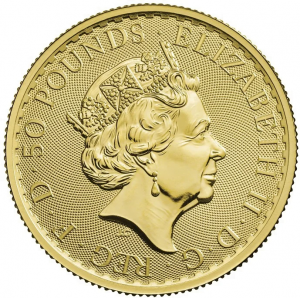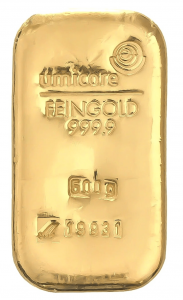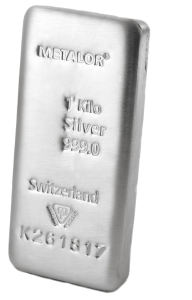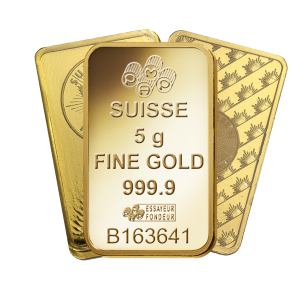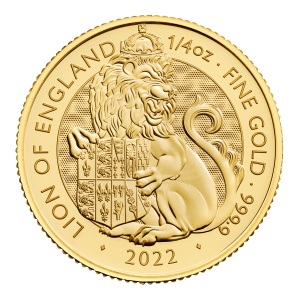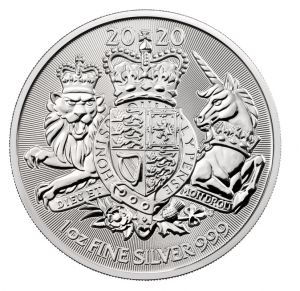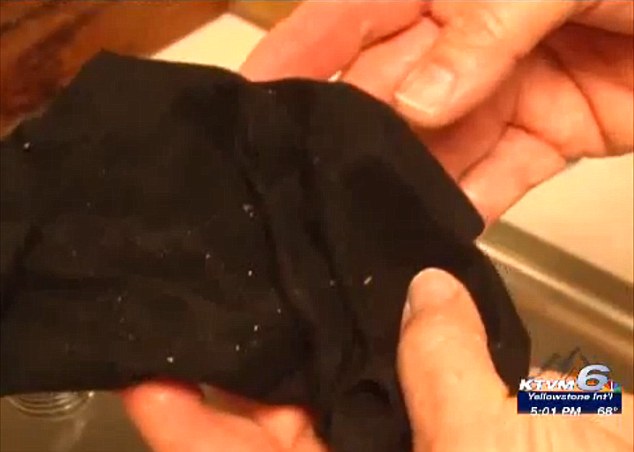In 2014, we took a look at where in the world the most gold was mined. Now, we want to take that a step further and look at which countries in the world hold the most gold reserves.
Countries hold gold as a precaution to safeguard themselves against inflation, loans, debt and economic disasters. The total gold holding globally was just under 32,000 tonnes in the summer of 2014.
So, with this in mind we want to take you around the world with our latest interactive infographic to show you which countries have the most gold.
Investments in 2015
It seems like quite a while ago now since the financial markets offered some stability. With the turn of the new year, the hope is that the coming 12 months will offer a fresh start for investments in 2015. Unfortunately it seems the green shoots of UK recovery experienced last year may prove to be the calm before the storm. Dramatic oil price falls, terror atrocities and the Swiss Franc decoupling from the Euro have already occurred in the first weeks of the year. With the possibility of a hung parliament in May, it seems that 2015 will be a very rocky year indeed for the investment world.
April will mark the start of pension freedom whereby 100% of a pension can be taken rather than being forced to purchase an annuity. Therefore falls in the value of your pension fund just won’t mean the difference of a few pounds a month to your annuity income. It could lead to a fall of thousands, or tens of thousands in the pension cash you hope to get your hands on. So it’s now more relevant to hedge against market turmoil than ever due to a far deeper impact on your personal finances.
Contemplating gold investment? Download our FREE Insiders Guide here
Hedging strategy
Such macro economic mayhem requires portfolio diversification to protect its value from

Falling Sterling and inflation
In Sterling terms, gold is up more than 12% in the first 3 weeks of 2015. Part of this is due to its qualities as a safe haven, protecting from the losses we’ve seen in equities and global terror events. However, the price is also being driven by a depreciating Sterling. The domestic currency has lost ground with almost all major currencies except the Euro which seems to be holding up the white flag. This is in part due to super low inflation and the acknowledgement that interest rates not only don’t need to increase, but any hike would damage our fragile recovery. Analysts suspect that rates will stay at record lows for the next 18 months at least. This is great news if you’re looking for a loan with record low interest rates. However, for the investments in 2015 it means deposit rates are near zero. With the General Election in May and no one party pushing ahead in the polls, the possibility of a hung parliament will exert further pressure on Sterling.
For those seeking protection from a weak currency, gold investment not only diversifies away from holding all your assets in Sterling, but also directly benefits from a falling currency value.
European disintegration
By far the weakest region is Europe. It has lagged well behind the UK and US in recovering from the credit squeeze of recent years as it looks to simply survive. The worst affected countries like Greece, Spain and Portugal have suffered hardship not seen in generations with record unemployment figures. So far the stronger countries like Germany have stuck by the weaker ones in the hope of somehow coming through the storm with the Euro intact. However, 2015 could well see the entire region finally explode under the pressure. Already the Swiss have shocked markets by losing faith in the Euro, decoupling from its own currency. As a major pillar of Euro strength, the Swiss Franc being pulled away could well lead to the entire building crashing down. Certainly with the Swiss turning their back, there will be many Germans also tempted to go it alone. Not a great prospect for investments in 2015.
Speculation is mounting that Greek elections this coming weekend could see them leave the Euro and consequently tear up its austerity agreement. Greece’s promise to pay back loans through squeezing the country of its finances has been met with huge resistance from the public who suffer continued hardship day to day. Such a move would cause losses world-wide for those exposed to Greece and its banking system. Rumours abound that further Quantitative Easing is being prepared for the Euro in the wake of such events, which would further contribute to its demise in global perception.
But what do Europe’s woes mean for our investments? Firstly, UK investors are suffering from huge falls in their stock and bond values which have elements invested into Europe. In today’s globalised markets there is always a huge impact globally if any particular region crumbles.
As our largest export market, we will also experience continued drops in demand for our products and services from Europe. Not only will European consumers have less disposable income but their weaker currency will also mean that our exports become expensive.
Hold some physical gold in your pension
It seems then that 2015 could provide Gold’s perfect storm
so it makes sense to hold some tax free gold coins to diversify away from Sterling and receive better returns than deposit rates. Gold has outperformed inflation in 8 of the past 10 years, better than any other asset class and could again be one of the winning investments in 2015.
With pension freedom arriving this year, it also makes sense to allocate some of your pension pot to physical gold bullion. That way any market volatility will be ironed out by gold’s safe haven status, meaning protection for your pension value and predictability for the year ahead.
One of the most significant headlines in financial markets over recent months has been the dramatic fall in the oil price to $50 a barrel. But is there a direct relationship with gold and will a sustained low oil price drag down the price of precious metals?
Share prices tumble
With the FTSE 100 index heavily weighted towards oil, the continued fall in oil prices has pulled the index lower in value too. It’s been a hugely volatile period for equities but not all of this turbulence can be solely credited to plummeting crude prices. European stocks have dropped dramatically due to concerns that Greece’s upcoming election will lead to the Hellenic Republic leaving the Euro and its austerity promises behind. The consequence would be considerable debt write-offs for many institutions and investors and reported Quantitative Easing by the EU in an attempt to prop up the floundering region. Similarly, the recent terror strikes in France, with additional threats globally has put further pressure on the stability of equity markets.
Clearly the gold price has benefited from these falls. As the traditional safe haven investment, many investors have switched into gold to protect against the volatility. However, oil can’t be granted full responsibility for the equity turbulence as markets still struggle with the fallout from the ongoing global financial crisis.
Falling oil price has led to lower petrol prices
Petrol prices have fallen from £1.27 / litre in November to around £1 / litre now. In theory, this should put more money into consumers’ pockets – driving up the economy and gold down. However, the fall in the pump price doesn’t get close to reflecting the fall in the oil price as so much of the petrol price consists of tax. This effect has diluted oil’s impact. With other factors still holding the economy back like low wage increases, lower petrol prices alone aren’t enough to spark an economic surge.
Cheaper production costs
With the oil price tumbling, it isn’t only consumers who could benefit from lower fuel prices, but corporations too. Anything which requires transport could see costs fall while the oil price remains low. It’s just doubtful that companies will choose to pass any savings onto consumers. Gold mines have struggled over the past 18 months with gold’s price falling below the cost of production. With oil making up a substantial element of their fixed costs, many may perceive the low crude price as the saviour they needed. Lower oil prices could well end up keeping some mines in business who may otherwise have shut down – maintaining gold’s supply source. However, with such lean times recently for the gold miners, it is unlikely that low fuel costs will be passed on as lower gold prices as they seek to make up lost revenue during the recent mine squeeze.
Gold up 5% this year
Despite oil’s fall, and prediction to continue falling towards $40 a barrel, gold has started the year robustly. While it’s risen strongly in Dollar terms by 5%, its performance in Sterling is even better at 7%. Not bad in a fortnight. This demonstrates that while oil has some degree of impact on the gold price, it is impossible to draw a direct correlation. There are simply too many other factors at work.
Indeed, some of those who may suffer the most by the falling oil prices are the Russians and some Middle Eastern producers. These are the very same investors who have provided the impetus for the UK economy by focusing much of their investment in the UK. Take away the momentum from these guys, and the UK economy may yet be pulled back, sparking another rush towards gold. So while the Ukraine invasion may not have made an immediate impact on your gold investment, it may well be doing now.
Gold supplies
The price of gold is a unique and volatile beast. As an extremely rare precious metal, its lack of availability is a major factor in its high value. It makes sense that more readily available commodities such as silver can be purchased at lower prices. Perhaps due to its coverage in the press and infamy throughout history, the average person doesn’t realise quite how rare gold is. It is estimated that all the gold ever mined throughout the entire history of existence, would only fill a cube the size of the Eiffel Tower’s footprint. Our infographic Where in the world is the gold provides some insight into where exactly gold is mined around the globe.
So it’s interesting that so many gold investors and commentators focus primarily on demand, while completely neglecting to consider the impact of gold supplies on the value of gold.
Download our FREE 7 step cheat sheet to successful gold investing here
Gold mine closures
While gold has entered a period of consolidation with its price falling to 4-year lows,
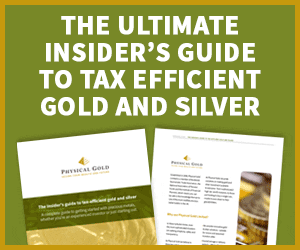
The cost of production differs across the various gold mines, with some being less efficient than others. For the higher-cost producers, the current gold price has meant losses on every ounce mined, they are literally having to sell the gold lower than their cost of production. Presently 5 of the 19 major mining companies fall into this category with several others on the brink. Fixed costs are nearly impossible to reduce and many mines are paying the price for letting costs spiral during gold’s bull run.
For those holding direct shares in gold mining companies, complete losses are possible if mines close. Your hope would be that you own shares in the more resilient lower-cost mines to ride out the storm. Either way, the precarious position demonstrates how much riskier gold mining share investment is compared to physical gold investment, where the tangible metal will always provide an intrinsic value.
Eventually, mines will close, probably in the not too distant future, as no business can justify producing a product at a loss. Obviously, this will immediately cut the supply of gold coming into the market, providing support for the gold price. For those mines who survive, this price increase will, in turn, release the mounting cost pressures. For those holding physical gold, it seems that the medium term looks promising due to this dynamic.
Physical selling and recycling
The second form of gold supplies is in the secondary market through recycling and physical holders selling their positions. The World Gold Council released their latest Investment Commentary last week, citing record low gold recycling as a factor to consider when thinking of gold over the medium term. Less gold being scrapped and recycled puts a major dent in the overall pool of gold available.
Despite the price falls, we’ve actually seen very few clients coming back to sell their holding. There is always a small percentage who panic or simply need cash, but overall the physical gold market has not sold off like the paper gold market. With few second-hand sellers, many gold coins remain in very short supply. While the availability of gold bars seems unaffected, premiums on rare and collectable coins have increased. If physical holders can remain calm during the current sell-off, this supply squeeze will provide a catalyst for a quick bounce back upwards.
Central bank hoarding
In addition to retail customers holding gold, central banks also impact gold supplies. There’s no more significant player on the global stage today than China, so any rumour relating to their possible hoarding of gold should also be considered. Alan Greenspan, the former head of the Federal Reserve, recently suggested that if China converted only a small part of its $4 trillion reserves into gold, their currency would assume huge strength in the current fragile international financial system – possibly toppling the US Dollar. While China has not disclosed its gold reserves for years, it is believed they are aggressively stockpiling the metal to diversify its holdings away from the vulnerable Dollar. While official figures claim its gold holding is 1,051.1 tonnes, many analysts believe the true figure to be 2-3,000 tonnes.
Any significant move to topple the Dollar by hoarding more gold would dramatically reduce the world’s supply of the precious metal.
So while the gold price consolidation is unsettling, especially for those holding mining stocks, the upcoming supply squeeze could yet save the day.
With the gold price pretty much on the floor where is all the appetite coming from? Notwithstanding the fact that the FTSE has lost almost 10% or £50 billion (in terms of liquidity) in the last six weeks the immediate reaction has prompted the market to buy physical gold as a means of protection.
China hungry for gold
According to the Chinese, the rest of the world have been slow on the uptake and are 6 weeks behind the curve. China has always been 10 steps ahead with regards to ensuring risk is minimised and protection is maximised and have been quietly soaking up the world’s gold supply as they see Gold’s Perfect Storm approaching. The trend is even more astonishing given that it’s not just the Central bank buying it’s also the Chinese population who are taking control into their own hands and securing their own wealth.
Chinese demand for gold sits comfortably at 1,132 tonnes a year and this figure is quickly escalating with a target of 1,350 by 2017. It’s safe to say that the Chinese have cemented its place as the world’s largest gold market.
Interested in gold investment? Download our FREE 7 step cheat sheet here
Royal Mint Targets Chinese market
According to the World Gold Council China will see sustained growth over the next four years and with prices 42% cheaper than they were 2 years ago, demand from china within the international gold market is accelerating. Despite the fact that “investment grade gold” consists of physical gold of at least 22ct, the Chinese tend to prefer 24ct gold. With this in mind The Royal Mint has attempted to capture this growing market by introducing, for the first time, a 24ct Britannia Coin during 2013 in an effort to appeal to this ever hungry Chinese demographic.
The Royal Mint has furthered its efforts by introducing The Lunar Coin where various animals relevant to the Chinese year are illustrated on the face of the coin. This year we’ve seen The Mint’s popular 24ct Lunar Year of the Horse being snapped up with of course the best prices on our Featured Products page with a 5% discount to our normal retail price. The Royal Mint have followed this coin up by recently launching the Year of the Sheep Lunar coin in order to spark even further interest within this community. The real beauty of this coin is that because it’s a British coin it has the status of Tax Free Gold Coins and is exempt from Capital Gains Tax; a double whammy if you’re a Chinese person living in the UK!
While the Mint’s new online shop and storage facility is a welcome, if expensive, addition to the UK’s gold distribution network, I don’t think I’m being too cynical that it also provides a perfect portal for Chinese collectors of British coins too.
It will be interesting to see how their offerings evolve over the next few years if the lucrative Chinese market continues to thrive.
This Thursday Scotlands 4 million residents have the opportunity to vote for Scottish independence.
The past few weeks have witnessed opinion polls suggesting one possible outcome and then the other. But what will the referendum and possible yes vote mean for the UKs investment community? Could the referendum create a perfect storm for gold investors?
Outcome speculation
Certainly, speculation over the votes outcome has shifted the value of Sterling over the past month. The UKs currency took a huge hit when polls suggested the vote for change had overcome the vote for status quo for the first time. The immediate knock-on effect for this was mixed. A weaker Pound can lead to higher exports due to the lower cost of goods for our export markets. However, with Europe already on its knees, very little uptrend was seen. For investments such as gold, initially priced in Dollars, a weaker Pound supported prices of the yellow metal for UK investors.
Within days of the yes campaign headlines pushing Sterling lower, papers were reporting on the No vote gaining momentum consequently pushing the currency back up. Expect further volatility in the coming days before the outcome is decided.
How would Scottish independence impact us?
On a micro level, no one really knows the exact logistics a yes vote would require. The choice of currency for Scotland is unknown but most speculate it would be weaker than Sterling immediately squeezing the population of Scotland.
No doubt arguments would last an eternity as to how the British national debt should be divided or North Sea Oil revenues shared. One thing is for sure, it will take time to resolve. In the meantime, the UK and Scotland will be shrouded with uncertainty, a factor in itself which will no doubt impact the 2 economies negatively. Foreign companies will hold fire on UK investment until the dust settles, crimping the economic recovery all our hopes desperately cling to. This may lead to less job creation in the short term, withdrawing funds from the pockets of the nation. These are all factors which will likely impact the FTSE index of companies which relies on spending and currently sits precariously high. Scottish independence could be the pin that bursts the equity bubble.
One things certain Our money isnt safe.
Political Unrest
A vote for Scottish independence would stoke further political debates around Europe. It would become increasingly difficult for Spain to deny the Basques and Catalans independence, the Northern League in Italy could be revitalised and Flemish separatists could reignite the debate in Belgium.
Closer to home, a Scottish move away from the union would leave David Cameron in a precarious position. His decision to boldly offer a straight yes/no vote rather than playing safe with Alex Salmonds proposal for a compromised option of increased self-Government could leave him with egg on his face.
Pressure could mount for the Prime Minister to step aside, fuelled by the strong anti-European sector of the Tories. With the General Election only 9 months away, a Cameron resignation will leave the British Government very weak. Last week Jeremy Heywood, boss of the civil service, admitted that the Government were not making preparations for a UK breakup.
With a further weakened coalition, the chances of a Labour victory in the election would rise to 75% or more. With the Labour partys pledges of higher taxes, closing foreign resident loopholes and squeezing the activities of the Citys financial heart, international investors would turn their back. Even worse, the Labour Government would lack power as they would be missing the Scottish seats from 2016 on which they depend on so much.
So what can we do to protect ourselves
With the referendums unprecedented nature, speculation on its impact will likely continue for some time. So with so much uncertainty, how can we protect our investments?
I think the wisest move if you havent done so already is diversification. The more asset types, sectors and countries your money is spread amongst, the more hedged you are to market mega-events that shift the entire global economy.
You may consider investing in physical gold to diversify. This presents several advantages. It provides an alternative store of wealth to Sterling, protecting you from the currencys possible fall in value.
Investing in Tax-Free Gold coins will mean that your investment is also ring-fenced from possible hikes in income tax, Capital Gains Tax or VAT which could stem from the national divorce.
With the political and economic unrest emerging from a yes vote, a safe haven investment such as gold bullion would also provide a valuable inverse correlation to the mainstream asset classes.
Even if the vote on Thursday supports keeping the Union together, this is only the start of an ongoing debate.
Plans to raid bank and ISA accounts could see a return to savers keeping money under their beds.
Proposals by the chancellor to grant HMRC new powers to take money directly from bank accounts to cover unpaid tax could soon become law.
Bank deposits and ISA accounts unsafe
The plans would enable HMRC to simply take cash from a UK tax payers bank account, joint account or even their Super ISA! Official documents reveal that HMRC expect to seize money from around 17,000 people a year, overcoming the need for HMRC to go to court.
The chancellor is attracted to the proposals as they estimate the scheme could recoup 375million between 2015 and 2019.
Are normal tax payers safe?
The premise of the new law is to target those who deliberately avoid paying tax despite having funds available. HMRC argue that law abiding tax payers suffer at the hands of this minority as it takes huge amounts of money to take these few to court, removing funds from the chancellors pot.
HMRC claims it will ensure targets still have at least 5,000 of funds left over after any raid.
However, while intentions may be to target only non-tax payers, HMRC have a reputation for making mistakes. So even if we pay our taxes our cash still isnt safe. David Gauke, the Exchequer Secretary to the Treasury said We must ensure that there are strong safeguards in place so that this is only targeted at the truly non-compliant.
Anyone who has dealt with HMRC over any query or mistake will know that it would take a lot of time and effort to recoup the funds nabbed from your account. In the meantime, you may suffer from direct debits and cheques bouncing while you await the correction.
How can we protect our money from being taken?
Disappointingly, the people targeted by the scheme can very easily side step the new powers once it becomes law simply by moving their cash overseas. In fact direct recovery of debts would encourage tax dodgers to move their money, eroding confidence in the scheme.
Inevitably, many law-abiding tax payers will fear for their cash and also remove their funds from UK banks and simply keep it at home. This would have several detrimental effects. The savers would miss out on receiving interest on their money, expose themselves to theft and in some cases even forget where they’ve hidden it. It could also lead to growing pressure on the already wilting banking system. Deposits help keep banks and building societies liquid and operating within capital adequacy ratios. A mass withdrawal of funds could lead to a collapse in some of the banks, and ironically require bailout cash from the Government.
Can gold play a role?
Either way, the new law should be good for gold. Diversifying a proportion of savings into solid gold could provide the ideal solution. It ringfences your wealth from HMRCs powerful hands but over time also protects your savings from inflation, unlike cash under the mattress. The capital growth of gold provides the return for the saver. The gold can be stored securely in a specialist facility to keep your coins and bars safe from the gold thieves.
In fact, the HMRC plan should provide a couple of strong catalysts for the value of gold to rise.
The increasing lack of trust in the banking system, combined with the threat of having your account raided, should fuel demand for gold consequently pushing up prices.
If many savers do remove their cash from banks, the likely pressure on these institutions to survive and subsequent Government help, would further propel the gold price upwards appealing as a safe haven.
If the new law is passed, and you’re concerned, its best to act quickly to diversify. Otherwise you may find you’re paying double for the same gold once everyone else has bought.
Free Gold
As a child, I could only dream of free gold. But I do remember being incentivised by my parents to do well in my exams with promises of modest cash rewards for good results. I can’t think I received more than £50 in total, but my exam results were pretty good!
Nowadays, I face a constant psychological battle with my own kids. Generally, I know that the promise of sweets should grant me leverage with my children’s behaviour and focus on school work.
But in Dubai, where everything is taken to the next level, children as young as 2 years old are being offered pure gold to lose weight!
The Emirate’s growing obesity problem is illustrated by their rise to the 6th heaviest country in the world. They recognise the issue is detrimental to health and that it costs money to treat the associated illnesses. Just as importantly they also understand that the best way to reduce the weight of families is to get the parents involved. If it was up to the kids themselves, I’m sure they may have tried dangling the carrot of free tickets to Atlantis waterpark instead! While UK families would worry about where to keep coins and bars safe from gold thieves, residents of Dubai have owned and stored gold for centuries.
Download the 10 commandments to ensure you sell your gold coins at the highest price. FREE pdf
Your child is gold
Families can register for the free gold program, named “Your child is gold”, which offers 1 gram

Participants must register at one of several weigh-in sites so that health experts can measure their progress by the final weigh-in on 15 Sep. After the first day of the scheme’s launch, 9,200 had enrolled, 15% as families. This satisfies the intention of the program to address child obesity as authorities admit that many schools have cut exercise classes. This isn’t the first time Dubai has offered gold for weight loss. Last year they paid a total of £762,340 in gold, with three times the number of entrants this year.
Danger
Several experts in Dubai have criticised the scheme, citing the danger that sudden weight loss, especially in children, can bring. A kilo loss for an adult is modest but for a 5-year-old child, it can be proportionally significant and impact their health. To qualify for the gold, children must lose 2 kilos in one month, surely promoting short term weight loss rather than a move to a healthier lifestyle.
I can only imagine the political hot potato it would be in the UK. There would be an outcry from health authorities and exploitation from hard-up families. Considering the prospects for gold in 2014 British families would be queuing round the corner to sign up, perhaps even gorging on cakes beforehand to earn that bit extra! Still, it’s fascinating that Dubai’s ruling body can recognise their people’s affinity to gold to realise the leverage that can bring.
Physical Coins and Bars
The joy of owning physical gold coins and bars lies with the enjoyment of holding it in your own hands. The sheer weight of the gold, coupled with its unparalleled beauty, reinforces the knowledge and comfort of owning something of real value. With so many ‘paper assets’ becoming worthless overnight, the tangible nature of physical gold remains one of its most compelling selling points.
However, the one danger of keeping such a valuable asset in your possession is the threat of theft. So if you’re considering investing in gold, read on.
It seems that a particularly well-organised crime ring in the Greater Manchester area is well aware of this vulnerability. They also know that gold is synonymous with the Asian market where it has been bought and kept by Indians especially for many years. This tradition has clearly flowed over to British citizens of Asian origin, as this particular crime gang realised. They’ve been targeting Asian families in Manchester and Salford for their gold coins and bars.
Show me your gold
The gangs of men have been known to smash through patio doors with a brick to enter premises, fully clad in balaclavas and wielding machetes.
As well as demanding car keys, the thieves have asked: “Where’s the gold?” Some have even asked this question in Punjabi, suggesting that their knowledge of the gold’s existence stems from some of them being Asian themselves.
The spate of attacks has been particularly frequent in the Spring and Summer months, renowned as the Indian Wedding season when many Asian families purchase gold as wedding presents.
Clearly, the thefts have left many families feeling vulnerable and considering alternative places to store their gold.
Secure stores for gold
The whole point of owning physical gold is to have peace of mind that you possess something of real value. Therefore if you’re losing sleep over a safe place to store it, then it makes sense to pay for somewhere secure. And you don’t have to resort to storing the gold in your stomach as one man did in our recent blog.
If you’re lucky then you may already have a safe deposit box with your bank. Fees are low at around £30-40/year, but space is tight and access has to be arranged during banking hours. This will certainly remove the worry from your home although if robbers targeted the bank you wouldn’t be covered for loss unless you had your own insurance. Realistically these days, such facilities are difficult to find as high street banks have experienced a rise in demand for boxes, leaving little space for new safe deposit customers.
A similar alternative is to hire a 3rd party safe deposit box. A tiny box will set you back around £130/year but you will most likely have 24-hour access to the box. Unfortunately, these facilities aren’t on every street corner so you may have to travel to gain access to your gold.
Peace of mind
The safest option is to utilise specialist precious metals facilities as offered by gold dealers such as ourselves. It will cost you slightly more, but it includes insurance, handling and peace of mind that the gold is being stored by experts so your coins and bars will not tarnish. Be sure to check that your gold is being stored on an allocated, segregated basis. This basically means that you have real gold allocated up to the value of your purchase, rather than electronically, and that it’s ring-fenced from the storage company, gold dealer, and other investors.
If you do wish to take custody of your gold at home, ensure that you’re insurance company is aware of its value and that you’re covered for loss. We always use Royal Mail to deliver gold so it’s discrete for our customers. So if you want to buy gold bullion, ensure a large van doesn’t turn up to your house with Gold Bullion written on the side, otherwise, you can’t blame the thieves for targeting you!
Pure Gold flowing from taps
We’ve all been taught in life to appreciate the value of money. After all we work hard for it and it doesn’t grow on trees. But what if you turned on your taps to discover that rather than just water coming out, it also flowed pure gold!

When Sharon Brown of Whitehall, Montana pulled the plug out of washing the dirty dishes, she noticed a glistening residue remained amongst the soap suds.
‘She pulled the plug to let the water out and it was glistening, gleaming little flecks,’ Mrs Bown’s husband Mark told NBC.
They joked that it couldn’t be gold, but after sending the particles for chemical tests, the Montana couple were shocked to find that it had indeed been pouring pure gold from their taps.
The Brown’s aren’t the only ones in the town to notice the golden flecks.
Their neighbour Paul Harper has also been getting gold fragments in his drinking water.
But rather than be excited about the find, these residents are concerned at the lack of purity in their water. ‘If we’re getting heavy metals that you can see with the naked eye,’ Brown said, ‘what else might be in there?’
So where is the gold coming from? Clearly gossip has spread that it must be linked to the Golden Sunlight gold mine situated a mere 5 miles from this sleepy town which opened in 1982.
However officials said the two are unrelated, and it’s more likely that the flakes have come from pumps or pipes linked to the Whitehall water supply. This sounds to me like an attempt to contain the growing excitement of the bizarre find.
Either way, I know that if I lived in that town, I wouldn’t be complaining about the lack of purity of the water supply! In fact, considering the prospects for gold in 2014, I’d probably be running the taps all day.

